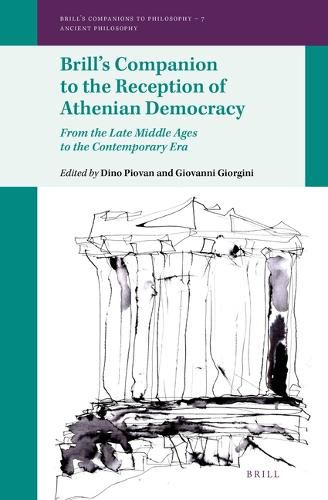Readings Newsletter
Become a Readings Member to make your shopping experience even easier.
Sign in or sign up for free!
You’re not far away from qualifying for FREE standard shipping within Australia
You’ve qualified for FREE standard shipping within Australia
The cart is loading…






The first ever guide to the reception of classical Athenian democracy, Brill’s Companion to the Reception of Athenian Democracy delivers a fresh and wide-ranging analysis of the uses and reinterpretations of ancient Greek democracy from the late Middle Ages to the XXI century. The book’s first section explores this history from the rediscovery of classical antiquity in the Renaissance in different countries (England, France, Germany, Italy, American Republic) and ages, while the second section focuses on philosophical movements such as Marxism and on contemporary philosophers such as Leo Strauss, Hannah Arendt and Michel Foucault; the last section examines the reception from the perspective of current political science.
The book offers a comprehensive and multidisciplinary approach to this important topic by bringing together internationally recognised scholars from a variety of disciplines, including ancient and modern historians, historians of political thought, political philosophers, and political scientists.
$9.00 standard shipping within Australia
FREE standard shipping within Australia for orders over $100.00
Express & International shipping calculated at checkout
The first ever guide to the reception of classical Athenian democracy, Brill’s Companion to the Reception of Athenian Democracy delivers a fresh and wide-ranging analysis of the uses and reinterpretations of ancient Greek democracy from the late Middle Ages to the XXI century. The book’s first section explores this history from the rediscovery of classical antiquity in the Renaissance in different countries (England, France, Germany, Italy, American Republic) and ages, while the second section focuses on philosophical movements such as Marxism and on contemporary philosophers such as Leo Strauss, Hannah Arendt and Michel Foucault; the last section examines the reception from the perspective of current political science.
The book offers a comprehensive and multidisciplinary approach to this important topic by bringing together internationally recognised scholars from a variety of disciplines, including ancient and modern historians, historians of political thought, political philosophers, and political scientists.